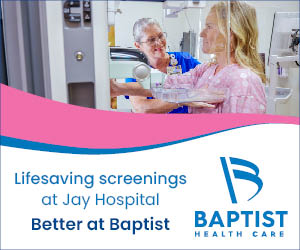Living With Purpose
One of the symbolic descriptions from the most southern states around harvest time is that cotton fields are called “the snow of the south”. It’s a beautiful scene to look out across half-mile rows and see acres and acres of beautiful white cotton scattered among the country side. The “real snow” that falls during the cold months in other parts of the country, can be equally delightful; that’s unless there’s lots of it and it hinders your travel. Several years ago, when I was the head coach of a men’s cross country team, we traveled to North Carolina during the off-season for an indoor track meet. The forecast called for snow and the team, being from Florida, looked forward to the possibility of seeing snow accumulation. Some members of the team had never seen snow! The team spent the night at the YMCA Blue Ridge Assembly in Black Mountain and woke the next morning to 8 inches of freshly fallen snow. It was an alluring scene and the runners cared more about snowball fights than running fast times in their races. Besides having to help them refocus on the purpose of our trip, I had to cautiously consider driving on snow and ice-covered roads through the mountains. None of the roads were closed, but everyone knew we were driving at our own risks. There are many cuts in the narrow roads between Black Mountain and Boone, North Carolina, and when snow comes with wind drifts, these cuts fill, and it’s slow-go for traveling. The snow was so deep in some parts, snow plows were getting stuck in steep ridges and inclines.
On another occasion when we were traveling to the same place for the same reason we spent an extra night because the snow had accumulated so much. On our way back home we made it into north Georgia and found the traffic at a standstill. The interstate was packed, cars were sliding off the road, and people were turning their cars around in the median for lack of patience. Many of these impatient travelers were getting stuck in the slushy ice mixture. At one point the team decided to bail out of the van and play the role of Good Samaritan and help push cars out of the ruts. We were fortunate in not being detained longer than 2 hours. On some roads, during both trips, people were snow-bound for more than a day.
It’s not only in the Blue Ridge Mountains that people get snow-bound. In an intellectual, moral, and spiritual way people may get snow-bound. It can happen in the big cities, small towns, as well as in the mountains. I’ve seen people whose hearts were so cold and whose manners were so stiff and unhappy that it was impossible for them to get along healthily with other people.
A church was searching for a new pastor and the committee asked its 90 year-old church member what her favorite kind of minister was, and she said, “I like one with the chill taken off.” In other words, she wanted one that wasn’t snow-bound. All other things being equal, the warm-hearted, frank, friendly, and sympathetic man or woman will have the greatest potential in any business or profession, and will distance themselves from the poor soul who is “snow-bound” and frozen in by their own selfishness and sour demeanor.
People of all walks of life will lose out on life’s most valuable treasures; faithful friends and kindred spirits, if they display a cold and snow-bound personality. Even people with less natural gifts than others, with their warm heart and sympathetic interest in everybody, have been able to draw throngs of loyal friends and confidants. Everyone ought to cultivate a positive interest in the welfare of others.
The most charismatic personality to ever be portrayed in terms of loving others for who they are and not what they do, was Jesus Christ. In one scene described in the Bible (John 6:1-11), people followed Christ out into the country where he had gone to have a little rest and a quite talk with his disciples, but he didn’t draw himself up in his shell and freeze these poor people to fear because they had intruded on his quite time. Instead, according to the Apostle Matthew’s account of the same story, “He (Jesus) had compassion on them” (Matthew 14:14). A little boy who happened to be in the crowd gave Jesus his bread and fish. Jesus multiplied them and made a great dinner for the hungry and tired people. People, like this little boy who willingly gave what he had to Christ and followed him as the pattern of his life in warm-hearted treatment of others, will never fail in society, the marketplace, or the home place. They might make a mistake, but it won’t be because of some snow-bound attitude. Warm your hearts, forgive others, and don’t hold grudges. Love covers a multitude of sins and contributes to the solution of every known problem in life.
• This bi-weekly column is written by Matthew Dobson. He’s a teacher, U.S. Army Chaplain, and the Pastor of New Bethel Baptist Church in the New York Community. His “Living With Purpose” Book series can be found and purchased on www. Amazon.com. You can contact him at: rmdobson@liberty.edu.

















